April 15, 2025 | 05:32 GMT +7
April 15, 2025 | 05:32 GMT +7
Hotline: 0913.378.918
April 15, 2025 | 05:32 GMT +7
Hotline: 0913.378.918
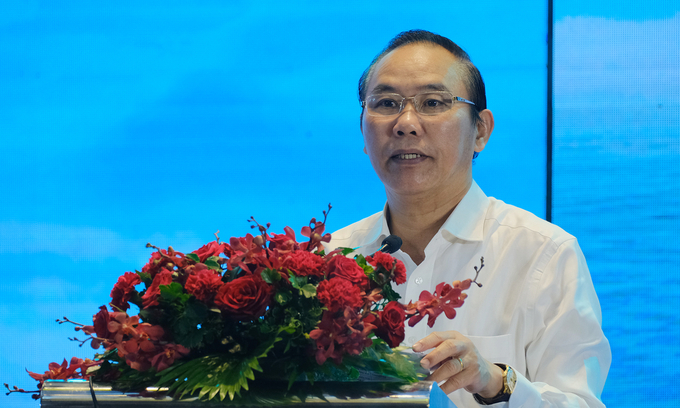
Deputy Minister of Agriculture and Rural Development Phung Duc Tien giving an opening speech at the workshop on September 15. Photo: Bao Thang.
The Ministry of Agriculture and Rural Development coordinated with Khanh Hoa Provincial People's Committee to organize a workshop on the morning of September 15 to summarize the current situation and solutions on nutrition and feed in industrial marine farming in Vietnam. Deputy Minister of Agriculture and Rural Development Phung Duc Tien opened the workshop with the fact that Vietnam has great potential to develop marine farming, as the country is rich in aquaculture species and products with high economic value.
Thanks to support from the Government as well as the Ministry of Agriculture and Rural Development, several departments specializing in the marine farming industry were formed, These departments have received Governmental support for the infrastructure of the fingerling area, the concentrated farming area, the supporting industry system, processing industry and consumer market development.
According to the Directorate of Fisheries, the total potential area for marine farming in Vietnam is estimated at around 500,000 hectares, including a coastal intertidal area of 153,300 hectares; an area for farming in bays, straits and islands of 79,790 hectares and an offshore marine farming area of 100,000 hectares. Vietnam expects to have at least 8 million cubic meter of marine cages, with an output of over 700,000 tons.
Despite numerous potentials and areas for development, Vietnam's marine farming industry still faces considerable challenges. According to Deputy Minister Phung Duc Tien, some of these bottlenecks include: poor planning, spontaneous farming activities, weak research and forecast of the market, fingerling production technology, health and environmental management of the farming area, limited infrastructure for marine farming among many other shortcomings.
"The production and supply of specialized feed for marine farming has not developed strongly at all stages, although this is a decisive factor to the price and quality of the final product", said the Deputy Minister.
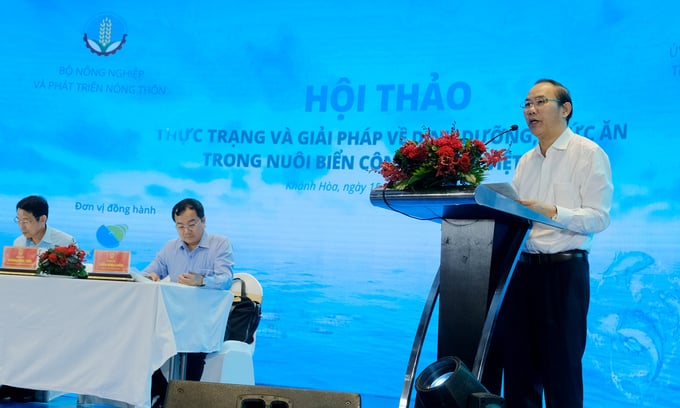
The Workshop on the current status and solutions on nutrition and feed in marine farming is expected to create a stepping stone for development of the marine farming industry. Photo: Bao Thang.
Feed for marine farming is mainly provided through two sources, domestic production and foreign imports. In terms of production, feed consists of 2 types: Complete mixed feed for industrial marine fish farming; Homemade food from agricultural by-products, trash fish species widely used in marine farming, especially marine fish farming and lobster farming.
Most of the industrial feed for marine farming is produced or imported by foreign-invested businesses, so it is difficult to control the price, quality, origin of feed as well as the ability and methods of supply.
"This is one of the key factors affecting the sustainable development of marine farming currently, slowing down Vietnam's marine farming industry", emphasized Deputy Minister Phung Duc Tien.
There are currently many companies involved in the production of complete compound feed for marine farming such as De Heus Co., Ltd. For sustainable marine farming, Deputy Minister Phung Duc Tien called on management agencies, local governments and businesses to strengthen coordination and promote the application of advanced science and technology in aquaculture, preservation and processing of seafood to create products that meet the needs of the market.
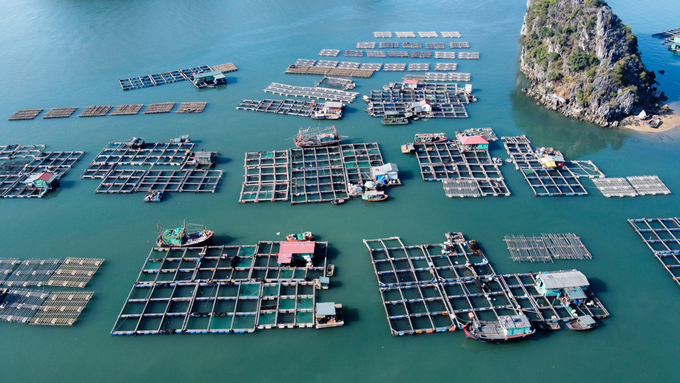
Vietnam's marine farming is oriented towards sustainable development, with science, technology and innovation as the driving force.
With that in mind, Deputy Minister Phung Duc Tien set out 6 key tasks to effectively implement the Project on development of marine farming until 2030, with a vision towards 2045, which was recently approved by the Government.
Firstly, research and develop feed formulations and feed ingredients suitable for each species and development stage, especially the fingerling and the juvenile stage of marine farming species.
Secondly, build concentrated food production zones in association with aquaculture logistics service areas and concentrated marine farming areas; take the initiative in domestic production with sufficient quantity and quality assurance for fingerling production and commercial farming.
Thirdly, socialize research on marine farming feed, with emphasis on supporting businesses and economic units to invest in research and development of feed production for marine farming.
Fourthly, conduct research as well as import technology, equipment and feed formulas for farmed subjects in order to transfer, research and gradually master feed production technology for fingerling production and commercial farming.
Fifthly, organize training and development of staff specializing in nutrition and feed research for aquaculture, including marine farming; ensuring sufficient resources to serve production research and development.
Sixthly, attract domestic and foreign resources to develop the marine farming industry with modern technology, advanced management, and close linkages with marine farms; ensure feed products with high quality at reasonable prices.
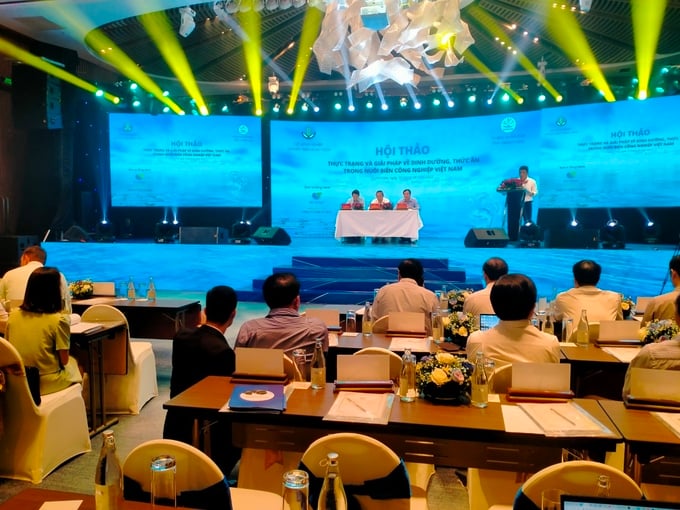
The workshop on the current status and solutions on nutrition and feed in marine farming. Photo: KS.
Presenting the current status of marine farming and production plans for the near future, at the workshop on the current status and solutions on nutrition and feed in marine farming organized by the Ministry of Agriculture and Rural Development in Cam Ranh City, Khanh Hoa, Mr. Tran Cong Khoi, Deputy Director of the Aquaculture Department under the Directorate of Fisheries, said that Vietnam has the potential to develop marine farming thanks to its many enclosed bays, coastal tidal flats as well as the islands and offshore areas.
The main marine farming species in Vietnam include: molluscs such as clams, scallops, oysters, green mussels, geoducks, abalone, pearl mussels, snails; marine fish such as grouper, cobia, snapper, sea bass, sea bream, pompano, tuna, milkfish); crustacean such as lobster, crab, blue crab; seaweed such as Kappaphycus alvarezii, Gracilaria verrucosa, Porphyra dentata, grape seaweed, etc.
Marine farming has made significant development steps from 2010 to 2021, and the area and output have been consistently rising. Namely, the total area of marine farming reached 38,800 hectares in 2010, and by 2021 this area has reached 75,000 hectares (202,000 of which are not included in intercropped crab farming) and 8.0 million cubic meter of marine cages.
On the other hand, marine farming production reached 156,681 tons in 2010 but by 2021 this figure has reached 700,000 tons. The total area of marine farming is planned to reach 90,000 hectares in 2022 (excluding the area of intercropping) and 9.0 million cubic meteres of marine cages; with a total output of 790,000 tons.
In addition to the achievements, marine farming in Vietnam is still spontaneous, lacks detailed planning. Moreover, the infrastructure conditions of marine farming are still limited, the technical production level of farmers has not met the requirements.
Science and technology in fingerling production is still limited, and production technology has not been fully utilized. Marine farming technology and cage system needs to be able to adapt to weather conditions. Some farmed subjects do not have standard farming procedures or have not been studied and tested thoroughly.
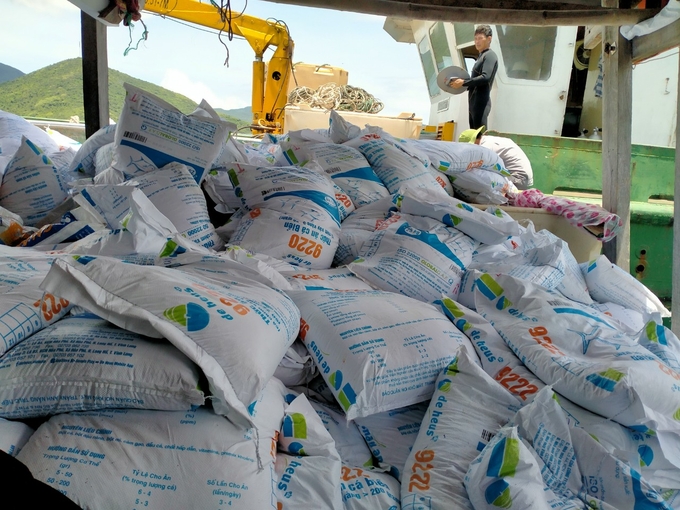
Research Institute for Aquaculture I feeds yellowfin pompano with industrial feed produced by De heus. Photo: KS.
The production and supply of marine feed has not yet developed strongly. Most of the industrial feed for marine farming is produced or imported by foreign-invested businesses . The Research Institute for Aquaculture I is actively researching a specific formula for marine fish and orders processing and supply businesses to supply for marine fish farming in Van Phong Bay, Khanh Hoa with excellent initial results.
In addition, Several businesses including CP Group, Uni-President, Proconco, Cargill, De Heus, Skretting Vietnam, etc. are currently participating in the production of complete mixed marine feed. The annual feed output is estimated at 40,000 to 50,000 tons. The volume of aquaclture feed that must be imported every year is very high, ranging from 140,000 to 150,000 tons of feed from Thailand, Hong Kong and Taiwan.
According to the Directorate of Fisheries, Vietnam had 7,447 establishments with 248,768 cages/rafts by the end of 2021. Namely, the number of marine farming establishments operating from shore to 3 nautical miles is 6,506, including 3,795 marine fish farming establishments, 1,846 lobster farming establishments, and 865 establishments for other species. The number of marine farming establishments operating from 3 to 6 nautical miles is 914. The number of marine farming establishments operating at beyond 6 nautical miles is 27.
Translated by Nguyen Hai Long
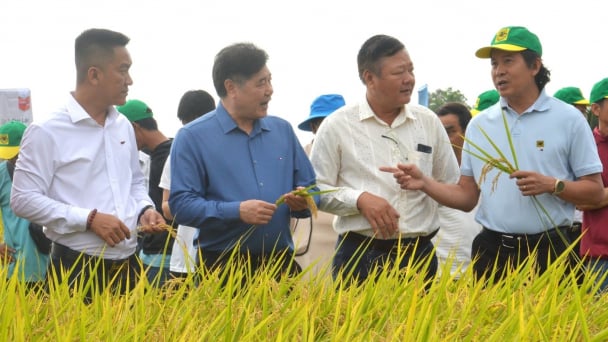
(VAN) The results from pilot fields are catalyzing the expansion of the One million hectares of high-quality, low-emission rice project in Kien Giang.
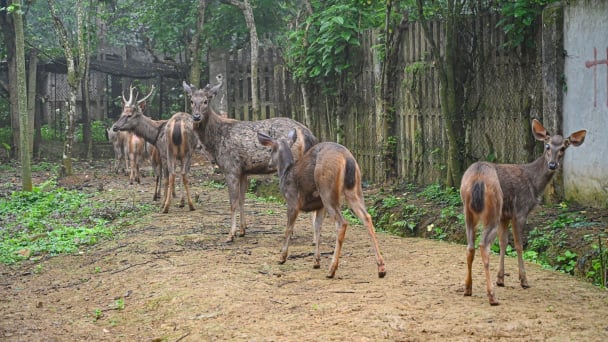
(VAN) On the morning of April 11, Cuc Phuong National Park received 18 individuals of endangered and rare wild animals from Da Nang city.
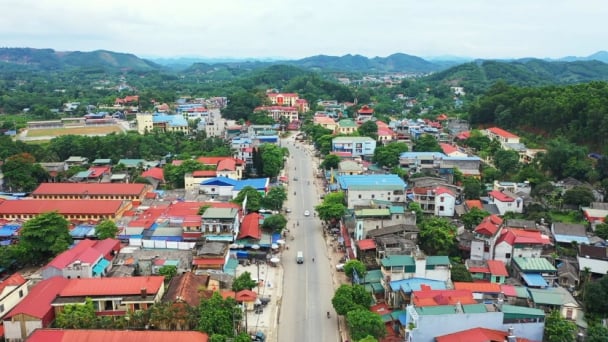
(VAN) FAO supports Vietnam in enhancing survey sampling techniques for the 2025 nationwide agricultural and rural census.
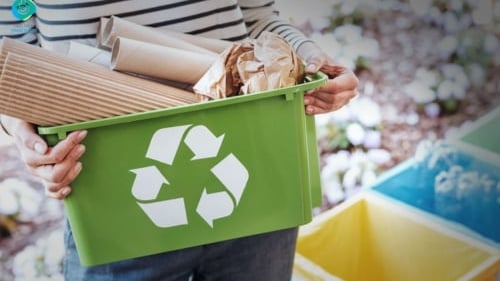
(VAN) By participating in the green transition, manufacturers become an indispensable part of the circular economy, contributing to resource optimization and environmental protection.
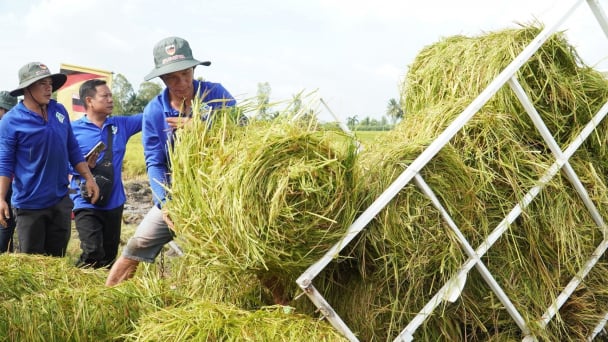
(VAN) The One Million Hectares of High-Quality and Low-Emission Rice Program can generate nearly 14 million tons of straw annually, posing an urgent requirement to diversify straw-based products.
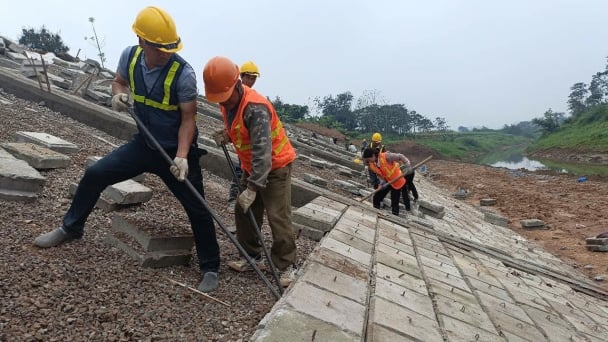
(VAN) This figure was recently announced at a conference held in Yen Bai, focusing on climate-resilient infrastructure development for ethnic minority regions.
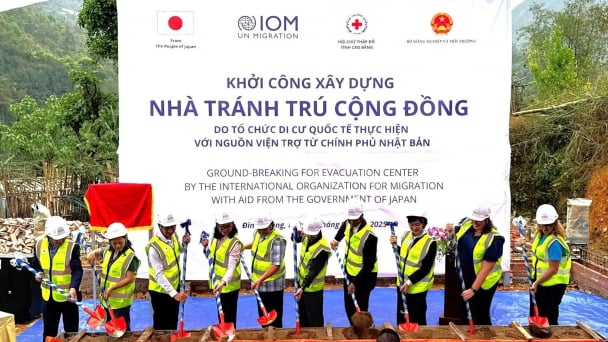
(VAN) The evacuation center is a practical work in efforts to respond to natural disasters and adapt to climate change in vulnerable areas.